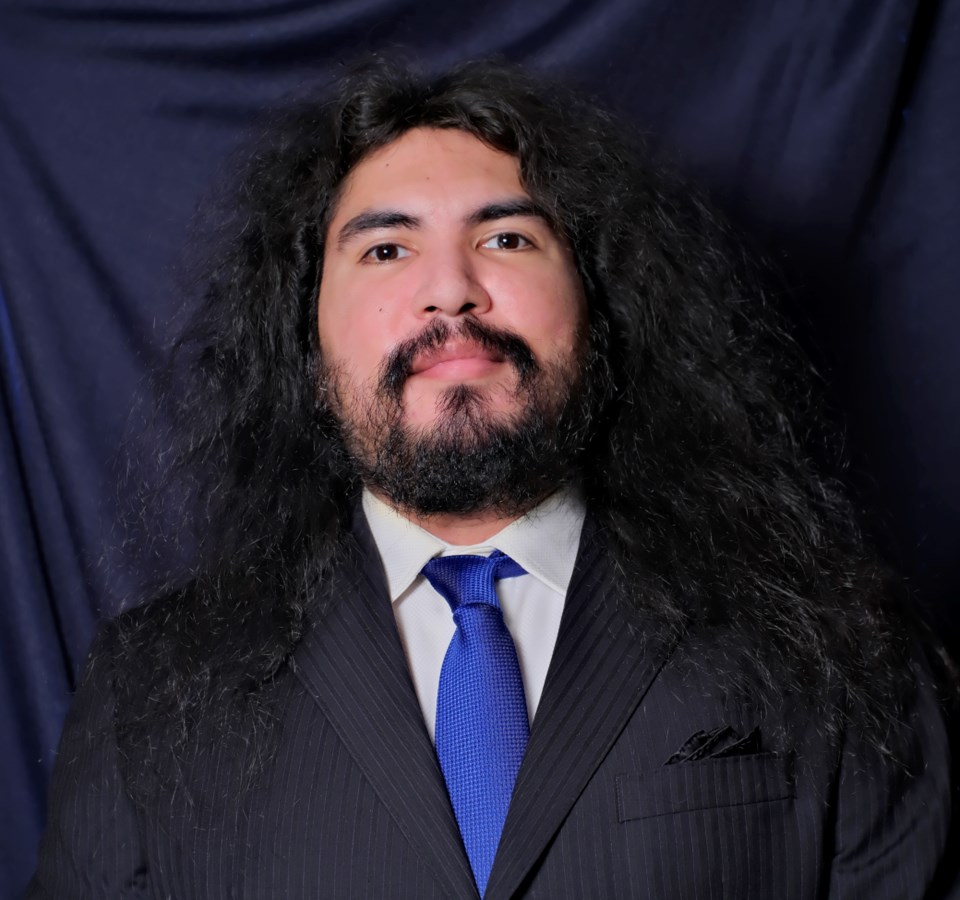You might know of George Manuel, Indigenous leader and Indigenous rights activist, but it’s unlikely you’ll know him in the way that Esteban Manuel, knows him.
Or at least, in the way that Manuel, a filmmaker, North Shore resident, and grandson of the Indigenous leader, is getting to know him.
As the recipient of Telus Storyhive’s tenth-anniversary funding Manuel has been given the green light to bring his documentary My Grandfather & Me, a piece that follows the filmmakers own journey of ancestral discovery, to fruition.
“It’s a short documentary that essentially explores my relationship with my grandpa. I’ve never met him, but this follows my journey of getting to know him and understanding how a lot of his values transferred over to me over the years,” he said.
Manuel said the film aims to honour his grandfather’s legacy, and showcase how his unwavering values and leadership continue to shape and resonate with himself and the wider community.
George Manuel, a member of B.C.’s Secwepemc Nation, fought for Indigenous rights over a 40-year political career. In 1970 he was elected as chief of the National Indian Brotherhood (known today as the Assembly of First Nations), serving until 1976, and in 1975 he founded and became president of the World Council of Indigenous Peoples, a position he held until 1981.
This film on the life and success of his grandfather is for all, said Manuel: those from non-Indigenous backgrounds hoping to expand their own education, those from Indigenous backgrounds hoping to learn more of a leader who created change, and other Manuel descendants hoping to better learn of their own personal history and family.
Ultimately however, he hopes it will be the youth who are trying to reconnect with their culture that the film resonates with the most.
“A lot of us are trying to decolonize and come back to our Indigenous roots and heritage, and so I feel like it would be good for the youth to see this journey, and to get an idea of what the leaders were like back in the day,” he said.
“We’re going through a lot of the same struggles and fights, like with the pipelines and Indigenous rights, so I feel like it will be very interesting for a lot of people.”
Manuel has had some experience behind the camera — he graduated the Indigenous Digital Filmmaking program at Capilano University and has worked on a number of small projects over the years — yet this will be the first time he will be in front of it.
“This is definitely something that is a little bit new for me, being on camera on this scale, but it means I have the opportunity to learn. Being a director you work with your actors, and I’ve heard that it’s beneficial for directors to take an acting class to help better work with them, so this is going to help me get a better idea of being in front of the camera and understanding actors,” he said.
Alongside production costs, the $20,000 funding will also provide training and one-on-one mentorship, and with the story due to be distributed on Telus Optik TV and online channels, there is much in the way of exposure.
“Our goal is to create a safe space for storytellers who want to hone their skills and bring the projects they care about to life,” said Telus Storyhive Edition Program Manager Ryan Logan.
Logan said the calibre and quantity of this year’s intake had been especially high, with around 500 pitches to sift through, but Manuel’s vision, one of 80 to be selected, had been a cut above the rest.
“It’s not easy, there are a lot of stories out there, and the projects and the pitches were amazing,” he said.
"But Esteban's was a really important story, a very personal story.”
Mina Kerr-Lazenby is the North Shore News’ Indigenous and civic affairs reporter. This reporting beat is made possible by the Local Journalism Initiative.



